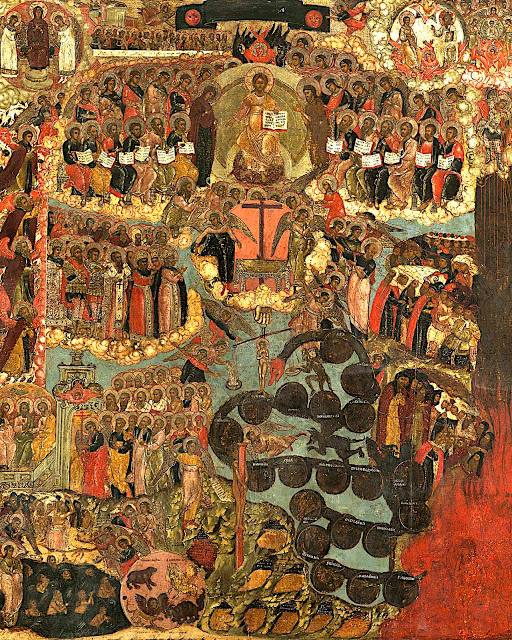 Everlasting life, promised in Holy Communion, is a central teaching of our faith. In the Nicene-Constantinopolitan Creed, which we recite in every Divine Liturgy and also frequently in the Divine Praises, says, “I expect the resurrection of the dead and the life of the world to come.” It is interesting that here we say, “I expect” rather than “I believe.” This is because this life beyond death is not only a matter of faith but also a matter of hope. And both faith and hope are virtues beyond human power alone, but need also the grace of God. In a way, we do not understand this life beyond death, probably we can that just as a child in the womb does not understand what it is to live in the world.
Everlasting life, promised in Holy Communion, is a central teaching of our faith. In the Nicene-Constantinopolitan Creed, which we recite in every Divine Liturgy and also frequently in the Divine Praises, says, “I expect the resurrection of the dead and the life of the world to come.” It is interesting that here we say, “I expect” rather than “I believe.” This is because this life beyond death is not only a matter of faith but also a matter of hope. And both faith and hope are virtues beyond human power alone, but need also the grace of God. In a way, we do not understand this life beyond death, probably we can that just as a child in the womb does not understand what it is to live in the world.
Death is the breakdown of our secular time and space to eternity and boundlessness. We are as yet unable to comprehend or understand this. Jesus taught it would be different, “At the resurrection they neither marry nor are given in marriage but are like the angels in heaven. (Matthew 22:30), and St. Paul cautions us, “So also is the resurrection of the dead …. It is sown a natural body; it is raised a spiritual body” (1 Corinthians 15:42.44). We do have analogous ways of thinking about death, when we pray in the Liturgy, “Grant rest, O Lord, to the souls of your departed servants in a place of light, joy and peace where there is no pain, sorrow, nor mourning.” We must be humble in our concepts of death, but still live in hope, for Jesus also said, “‘I am the God of Abraham, the God of Isaac, and the God of Jacob’? He is not the God of the dead but of the living” (Matthew 22:32). We also know that we will continue to be human, that is, have a body, as St. Paul says, a “spiritual body,” which we foresee already in our Lord’s resurrection. What is also undeniable is that we can pray for the dead, for no one of us dies already perfect, but we need to be purified of sin to be in the presence of the thrice-holy God.
The communion of saints tells us that we are one in Christ, and that we can pray for one another, and in this way not only help release our brothers and sisters in Christ but also ourselves from the bonds of sin. The souls of the faithful departed were always remembered on Saturday in our liturgical worship, because Saturday was the day that our Lord rested from all his works, after his death on the cross and before his glorious resurrection, for which we also hope.
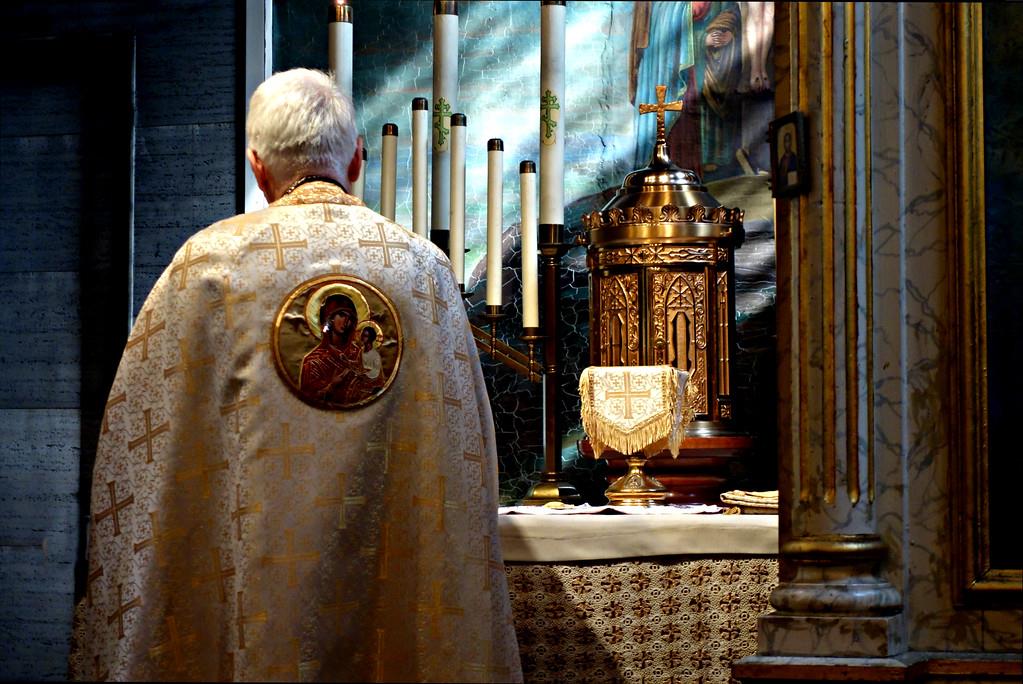 On March 7, the Catholic Herald in London and in Washington, DC, published the following article on the place and beauty of Eastern Catholicism by Jon Anderson:
On March 7, the Catholic Herald in London and in Washington, DC, published the following article on the place and beauty of Eastern Catholicism by Jon Anderson: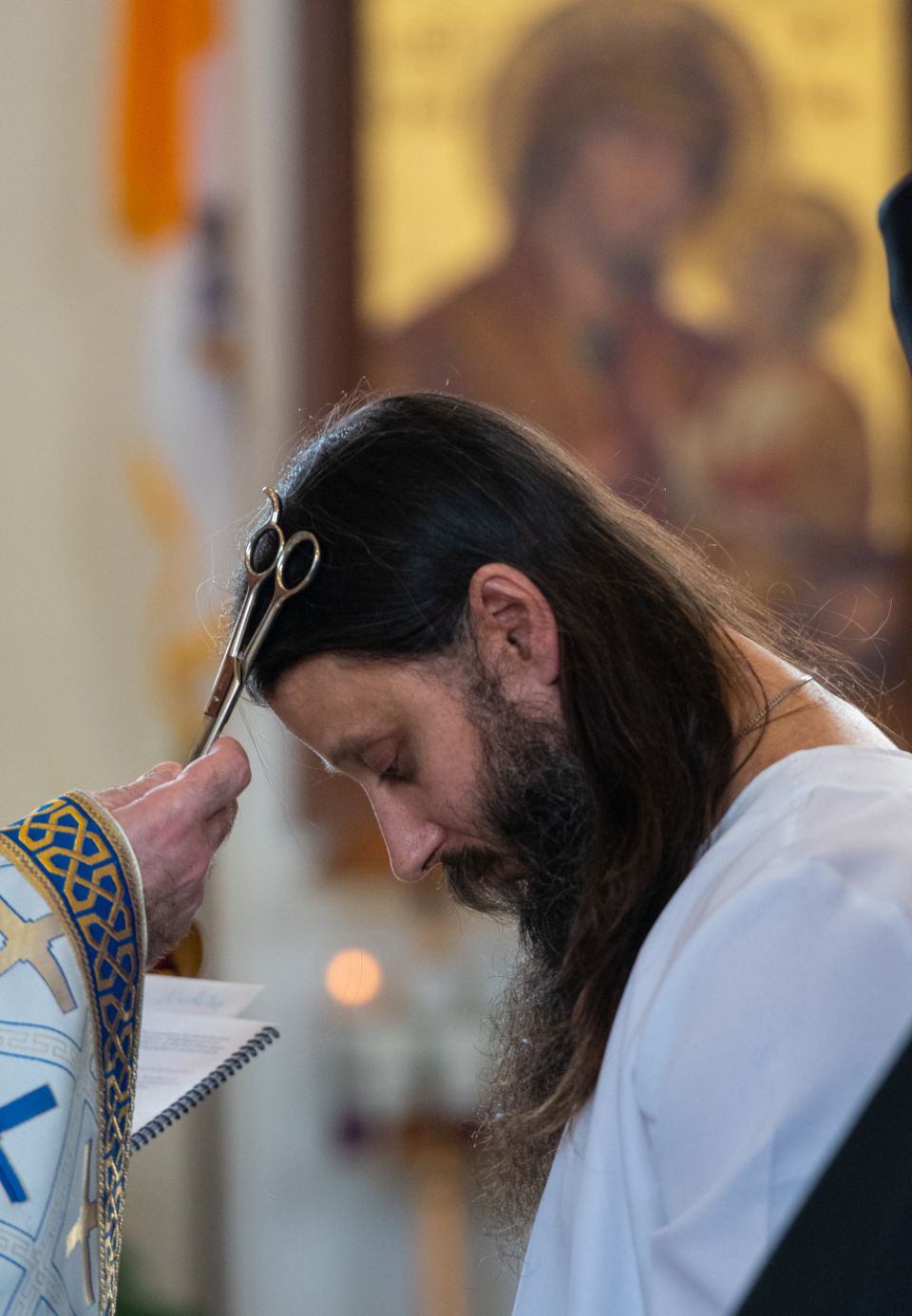 There is a new springtime for Byzantine monastic life in the USA happening now. Recently there was the tonsure of a new monk for the
There is a new springtime for Byzantine monastic life in the USA happening now. Recently there was the tonsure of a new monk for the 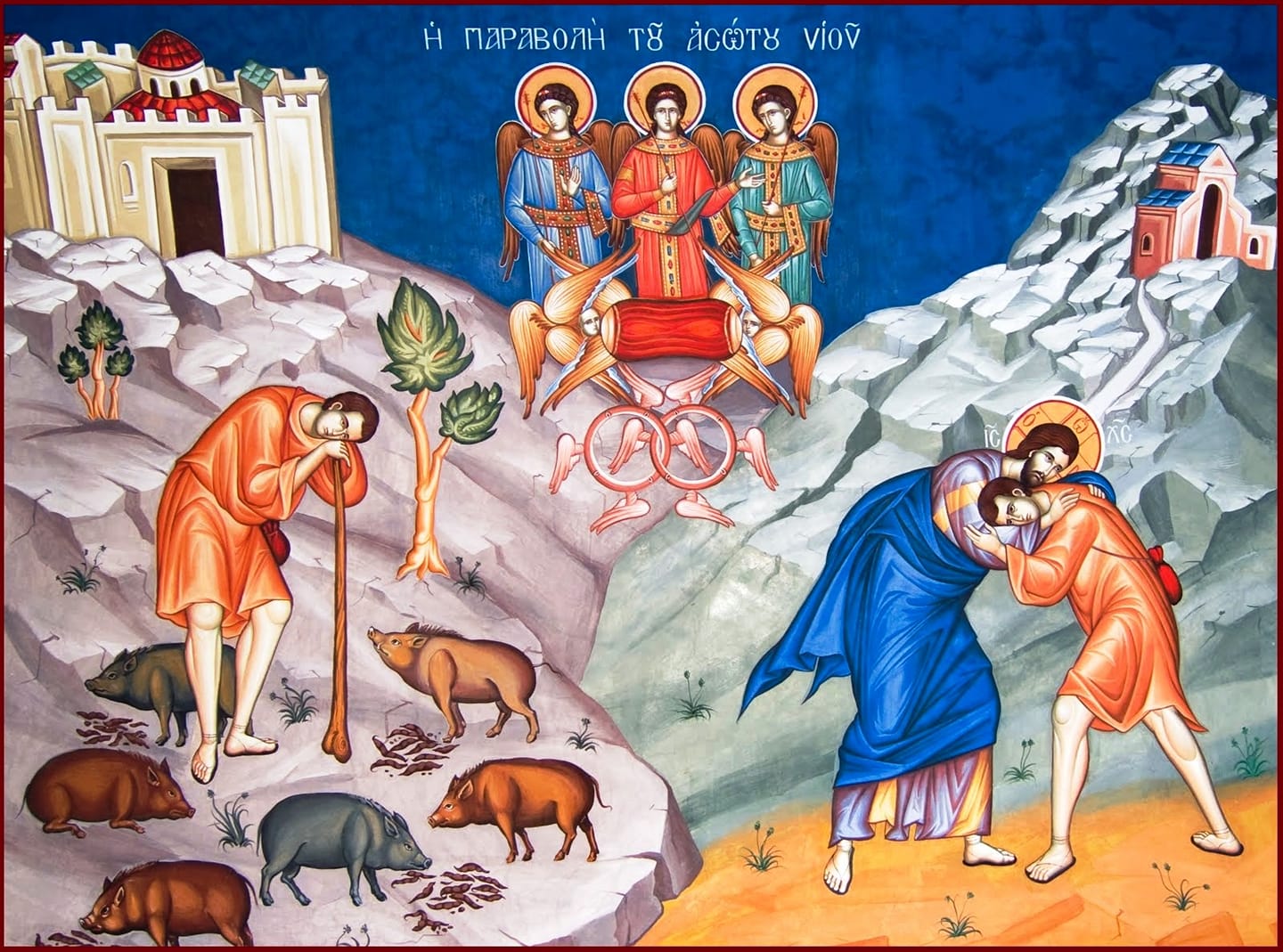 Patristic approach [the Church Fathers] to the imagery in the story of the return of the Prodigal Son, St. Cyril of Alexandria reminds us that Christ delivered this parable ‘immediately after the Pharisees and scribes murmured against Him, saying, “This man receiveth sinners and eateth with them.”’ Seeking to enlighten His detractors, the Lord spoke of a younger, prodigal son, who represented the sinners and publicans, and of an elder, faithful son, who represented the scribes and Pharisees. This, says St. Cyril, is the key to understanding the Prodigal son. …[T]he younger son, like the publican, through humility and repentance washed away his vices, while the elder son, like the Pharisee, through pride and judgmentalism sullied his virtues. (See Hierodeacon [now Hieromonk] Gregory, Orthodox Tradition, XII, 2, p. 74.)
Patristic approach [the Church Fathers] to the imagery in the story of the return of the Prodigal Son, St. Cyril of Alexandria reminds us that Christ delivered this parable ‘immediately after the Pharisees and scribes murmured against Him, saying, “This man receiveth sinners and eateth with them.”’ Seeking to enlighten His detractors, the Lord spoke of a younger, prodigal son, who represented the sinners and publicans, and of an elder, faithful son, who represented the scribes and Pharisees. This, says St. Cyril, is the key to understanding the Prodigal son. …[T]he younger son, like the publican, through humility and repentance washed away his vices, while the elder son, like the Pharisee, through pride and judgmentalism sullied his virtues. (See Hierodeacon [now Hieromonk] Gregory, Orthodox Tradition, XII, 2, p. 74.)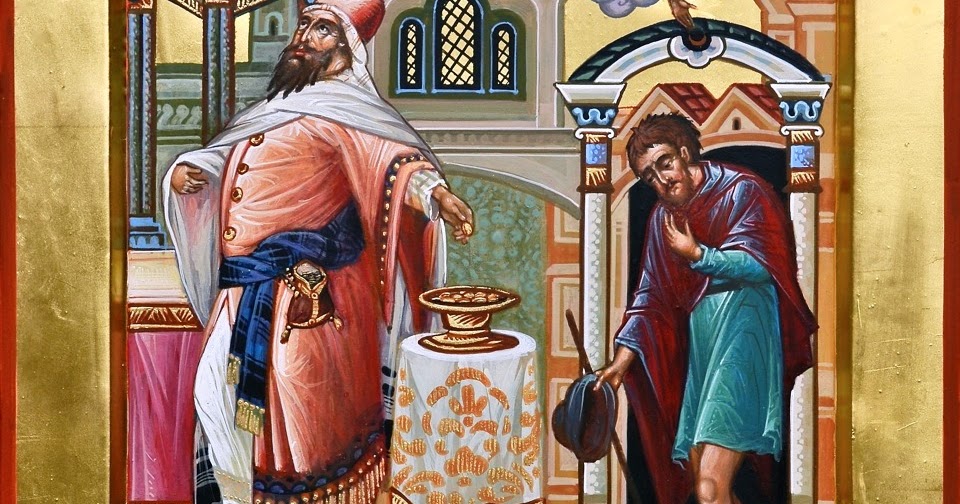 For Byzantine Catholics, Sunday Feb. 10 is the Sunday of the Publican and the Pharisee, which is the first of then “pre-Lenten Sundays.”
For Byzantine Catholics, Sunday Feb. 10 is the Sunday of the Publican and the Pharisee, which is the first of then “pre-Lenten Sundays.”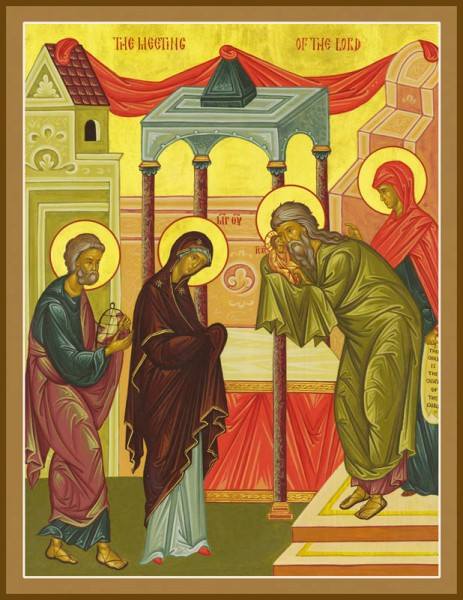 “The Lord said to Moses on that day he brought the sons of Israel out of the land of Egypt. He said: Consecrate to me every firstborn; whatever opens the womb among the Israelites” (Exodus 12:51). In this feast, the last of the Christmas cycle, the Feast of Light, Mary and Joseph bring the child Jesus to the temple to fulfill this commandment.
“The Lord said to Moses on that day he brought the sons of Israel out of the land of Egypt. He said: Consecrate to me every firstborn; whatever opens the womb among the Israelites” (Exodus 12:51). In this feast, the last of the Christmas cycle, the Feast of Light, Mary and Joseph bring the child Jesus to the temple to fulfill this commandment.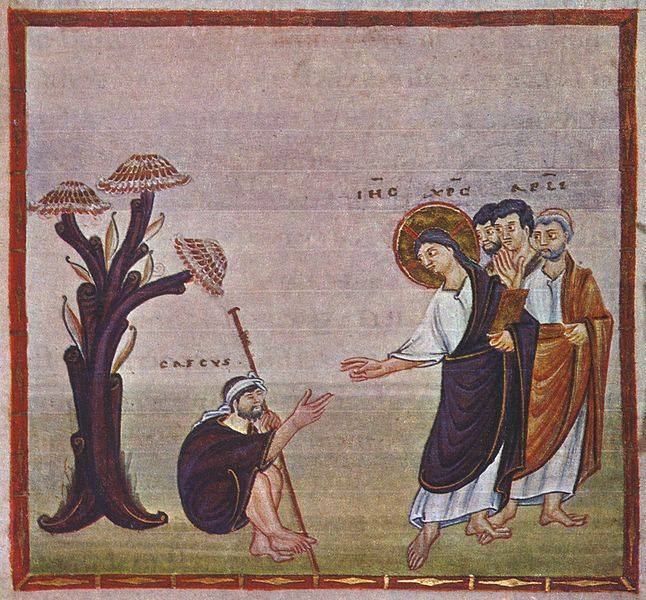 Read: 1 Timothy 1:15-17; Luke 18:35-43 (Readings of the 31st Sunday after Pentecost)
Read: 1 Timothy 1:15-17; Luke 18:35-43 (Readings of the 31st Sunday after Pentecost)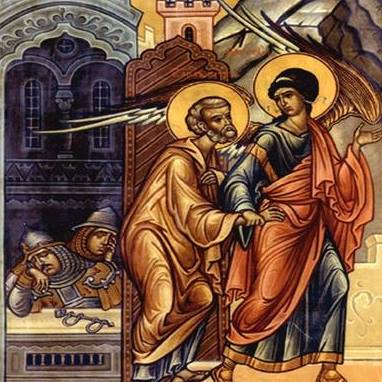 Our Lord says of Peter, “Blessed are you, Simon son of Jonah. For flesh and blood has not revealed this to you, (Simon has confessed Jesus to be the Messiah, the Son of the living God) but my heavenly Father. And so I say to you, you are Peter [the rock], and upon this rock I will build my church, and the gates of the netherworld shall not prevail against it” (Matthew 16:17-18).
Our Lord says of Peter, “Blessed are you, Simon son of Jonah. For flesh and blood has not revealed this to you, (Simon has confessed Jesus to be the Messiah, the Son of the living God) but my heavenly Father. And so I say to you, you are Peter [the rock], and upon this rock I will build my church, and the gates of the netherworld shall not prevail against it” (Matthew 16:17-18).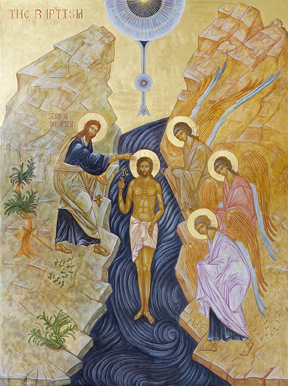 The feast of Theophany is not only about baptism in water, but about the gift of the Holy Spirit. The Kontakion declares, “You have revealed yourself to the world today; and your light, O Lord, has set its seal on us.” When we enter into the life of the Trinity, we receive the gift of the Spirit as the priest anoints us with the words, “the seal of the gift of the Holy Spirit.” We find this phrase in the Epistle of St. Paul to the Ephesians, “In [Christ] you also, who have heard the word of truth, the gospel of your salvation, and have believed in him, were sealed with the promised holy Spirit, which is the first installment of our inheritance toward redemption as God’s possession, to the praise of his glory” (1:13-14). Today in the Church, there is a movement called the “charismatic movement.” It wants to re-emphasize that all who have been baptized into Christ have received the gift of the Holy Spirit. This manifests itself in different ways according to our individual talents. On the
The feast of Theophany is not only about baptism in water, but about the gift of the Holy Spirit. The Kontakion declares, “You have revealed yourself to the world today; and your light, O Lord, has set its seal on us.” When we enter into the life of the Trinity, we receive the gift of the Spirit as the priest anoints us with the words, “the seal of the gift of the Holy Spirit.” We find this phrase in the Epistle of St. Paul to the Ephesians, “In [Christ] you also, who have heard the word of truth, the gospel of your salvation, and have believed in him, were sealed with the promised holy Spirit, which is the first installment of our inheritance toward redemption as God’s possession, to the praise of his glory” (1:13-14). Today in the Church, there is a movement called the “charismatic movement.” It wants to re-emphasize that all who have been baptized into Christ have received the gift of the Holy Spirit. This manifests itself in different ways according to our individual talents. On the